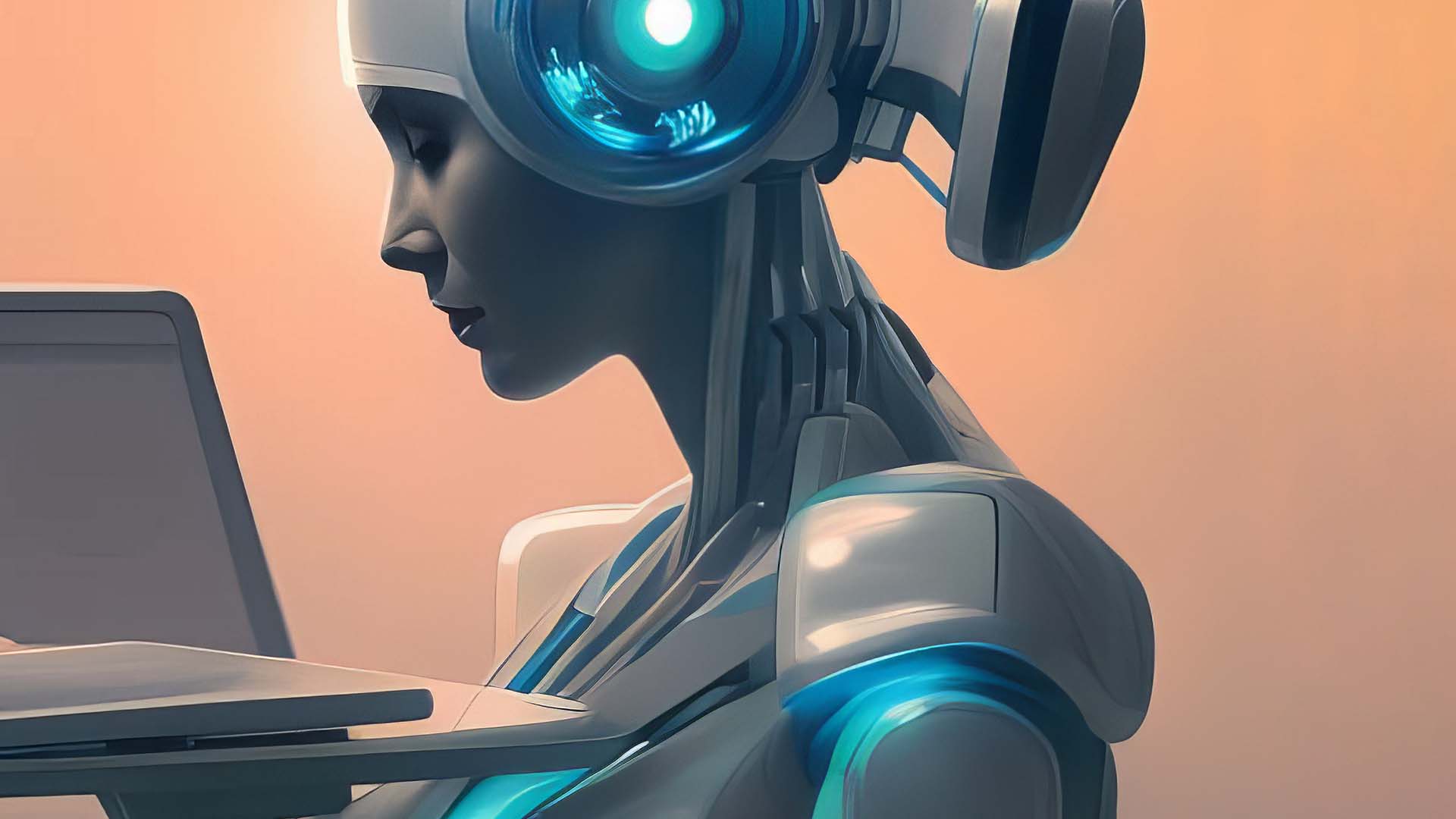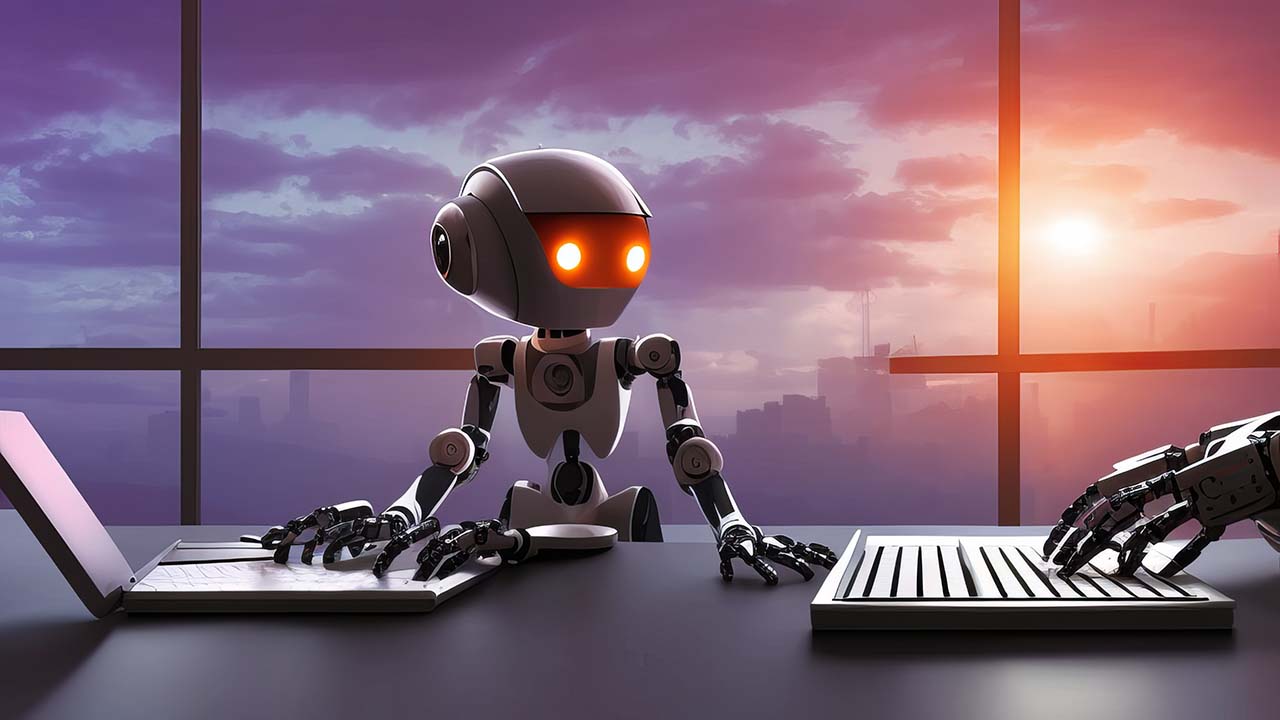
Artificial intelligence (AI) has come a long way in recent years, with new advances being made every day. From self-correcting coding to multi-language translations and the ability to automatically write computer code in different programming languages, AI is transforming the way we live and work.
One of the most exciting developments in the field of AI is the ability of machines to self-correct their own code. This means that instead of having to manually debug code, developers can simply input the desired specifications and let the AI take care of the rest. This has the potential to greatly accelerate the pace of software development and make it easier for companies to create new, innovative applications and services.
Another significant advance in AI is the ability of machines to translate text and speech from one language to another. This has long been a difficult problem for AI researchers, but recent advances in natural language processing (NLP) have made it possible for machines to understand and translate complex sentences and phrases with impressive accuracy. This has opened up new possibilities for businesses and individuals alike, as it makes it easier to communicate with people who speak different languages.
But perhaps the most exciting development in the field of AI is the ability of machines to automatically write computer code in different programming languages. This means that developers no longer have to spend countless hours writing and debugging code by hand. Instead, they can simply input the desired specifications and let the AI do the rest. This has the potential to greatly accelerate the pace of software development and make it easier for companies to create new, innovative applications and services.
One of the most promising areas of AI research is the ability of different AI systems to learn from one another. This is known as "transfer learning," and it involves one AI system using the knowledge and experience gained from another AI system to improve its own performance. For example, an AI system that has been trained to recognize faces could use that knowledge to help another AI system learn to recognize objects in images.

AI image generation isn't perfect, but its getting exponentially better
Transfer learning has many potential benefits. For one, it allows AI systems to build upon the knowledge and experience of other AI systems, which can greatly accelerate the learning process. This means that AI systems can learn to perform new tasks much faster than if they had to start from scratch. Additionally, transfer learning can help AI systems to avoid the "forgetting" problem, where an AI system loses its ability to perform a task it has previously learned.
Another advantage of transfer learning is that it allows AI systems to learn from a diverse range of experiences and data sources. This means that AI systems can learn from a wide variety of data sets, including both structured and unstructured data, which can help them to become more versatile and adaptable.
In addition to these advances, AI is also being used in many other industries and sectors. In the medical field, for example, AI is being used to improve the accuracy and efficiency of diagnoses, as well as to develop new treatments for a range of diseases. In manufacturing, AI is helping to optimize production processes and reduce waste, while in the financial industry, it is being used to detect and prevent fraud.
Overall, the latest AI advances are revolutionizing the world in many different ways. From self-correcting code to multi-language translation and the ability to automatically write computer code, AI is making it possible for machines to take on tasks that were once the exclusive domain of humans. And with the ability of AI systems to learn from one another, we are seeing new innovations and improvements in many different fields, making it clear that the future of AI is bright.
What does this all mean for us?
Well, it's probably going to have a much more profound an effect than we might have thought even only a year ago, because every single word that you just read above, from the headline text to the intro, and the article itself was written entirely by an AI system from OpenAI called ChatGPT. You might know the name better from the DALL-E image generation system, but text generation also features, and it's really quite astounding what it can achieve. Even the article's hero image was created by an AI system.
The above text was created simply by asking the system to create an article about AI, and then I gave it a very short bulleted list of topics I wanted it to cover, amounting to around three lines. That's all. The AI system automatically added contextual descriptive elements, and even further definitions. You can see my request below.

Once an article has been produced, you can ask the AI system to produce a rewrite, or to move a paragraph to a different place, or to change the style of language used. It's like guiding a human writer with requests.
What takes ChatGPT to another level is that it appears to understand context. For example, it can write in a requested style. From the style of a tabloid newspaper to David Attenborough, and it will even write in a text based version of an accent if asked to! Some of the results it gives could be written by top comedy writers. For example, the following text was produced from my request to “Write me a Shakesperian scene about a man whose toaster keeps making the toast fly out of the window.” Random, I know, but bear with me. The AI system gave me the following result.
ACT I, SCENE I:
A chamber in the man's house.
Enter the man, with his toaster in hand.
MAN:
Toaster, thou art a traitor to thy master!
Thy bread doth fly out of the window,
Leaving me hungry and forlorn.
What mischievous deed hast thou done?
Hast thou been possessed by some evil spirit,
That thou wouldst throw my bread to the winds?
Toaster, speak! Tell me the cause of thy rebellion,
And how thou mayst be tamed once more.
Toaster:
I do not speak, but only toast.
It is not I who has caused thy bread to fly,
But thy own hand that has pressed the lever.
MAN:
My hand? But I have been careful and gentle,
And have not pressed the lever too hard.
Toaster:
Perchance thou doth have a heavy hand,
And thy bread doth suffer for it.
MAN:
I see now the error of my ways.
I shall be more careful and gentle,
And toast my bread in peace once more.
Toaster:
Thou art wise, and I shall serve thee well.
Thy bread shall not fly from the window again.
MAN:
Thank you, Toaster. Let us toast together,
And make a fine breakfast for our master.
Toaster:
Aye, let us toast to a fine breakfast indeed.
Exeunt.
Will it replace us?
This is a question that only a short time ago would likely have resulted in us concluding that it would be many years before it was possible for an AI system to produce fluid, readable 'human-like' text, if ever. However, now we can see that AI is now producing results that could very easily have been written by a real person, and it's only getting better by the day.
But it doesn't end with simple text. As our AI produced article above mentioned, this system can in fact write its own computer code. For example, I asked it to write me a calculator app in C, which it did almost instantly. I was then able to follow up and ask it to rewrite the same code in assembly language. It did so instantly.
Other coders have been inputting problem code into the system to ask why it isn't working, and ChatGPT has been responding, not only with the corrected code, but a full and detailed explanation as to what was originally wrong with it. Although all is not what it always seems.
Still, despite any current shortcomings, it's impressive stuff, and it will have far reaching consequences moving forward, both from a technical and an ethical perspective. What I've demonstrated here is only the tip of the iceberg. There have been other, even more impressive results demonstrated elsewhere on the internet, but it does throw up very serious questions about authenticity. In my testing of the system I've fed it some highly complex topics, and it has produced results that have left me speechless in some cases. And remember, the system will only get better over time.
Is it perfect? No, there are many questions still to be answered, with OpenAI itself coming under some scrutiny being levelled as to where its funding comes from, as well as Stack Flow placing a ban on ChatGPT coding answers due to a flood of incorrect coding corrections being posted.
That said, we are most certainly on a cusp here, and it's probably fair to say that the vast majority of people, from the general public to politicians, are asleep to just how far AI like this has come.
Read David Shapton's take on where these new advances might take us.
Tags: Technology AI


Comments